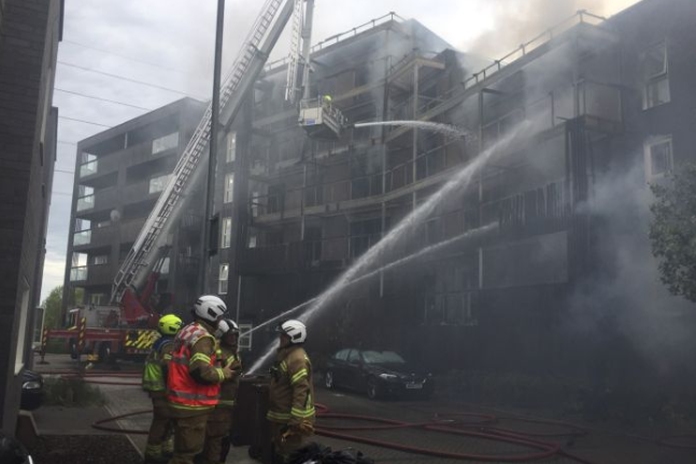
Designers working on high-rise residential projects have been warned to “specify with caution” in order to meet the fire requirements of a new British Standard governing balconies and terraces.
BS 8579 Guide to the Design of Balconies and Terraces was released at the end of August but developers and main contractors were already understood to be upgrading completed and signed-off flat developments before this in order to deliver the Class A fire performance at 18m+ they anticipated to be detailed in the new standard.
The Chartered Institute of Architectural Technologists (CIAT) warned that while such moves were “to be applauded”, there were industry concerns of a “double whammy” of implementing the new standard and new, unfamiliar products coming to market which could jeopardise safety.
The CIAT said that manufacturers are responding with Class A product developments but there were still concerns in the industry that some of the new solutions coming to market may not be adequately tested or designed for use at height or outdoors.
Julian Thurbin, of specialist building products manufacturer Wallbarn, said: “This situation has the potential to affect a wide range of building components within balcony and terrace construction.
“We are receiving high volumes of calls from construction professionals, including designers and cost engineers requiring guidance on the products that can – and cannot – be considered.
“We have also heard reports of completed and fully legal products being revised with exterior materials, including balcony constructions, removed post sign-off and replaced with Class A systems – in extreme cases across the entire project and not just 18m and above. It highlights the importance parties are placing on delivering safe, compliant buildings and underlines the need to be absolutely sure only the best quality products and systems make it to site.”
Thurbin explained that while heavy-duty plastic pedestals have traditionally been specified to support suspended balcony or terrace decking and paving, these pedestals must now be metal to achieve Class A performance.
He added: “There’s also the question of product testing – in the case of pedestals load-bearing is critical – which we appreciate is a challenge. However, our advice is always to consult with your original supplier (whatever the product and even if they do not supply a Class A alternative) to at least understand the questions you should be asking of a new supplier.
“Given that this issue centres around outdoor structures mounted 18m or more above ground level, industry concerns about product performance must be given serious consideration; system failure at height has the potential to have tragic consequences.”










